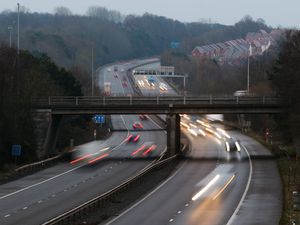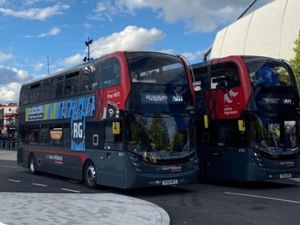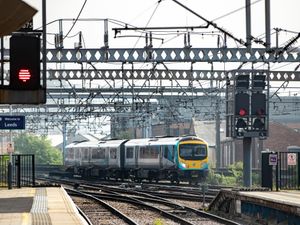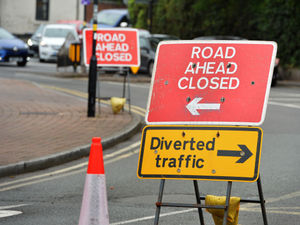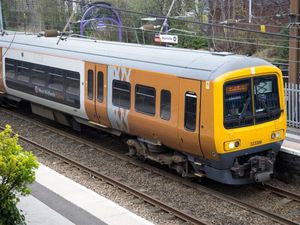Special report: Is it the end of the HS2 line?
Out of control costs, poor planning and flawed design – the future of HS2 appears to be hanging in the balance after a new report condemned the Government’s handling of the controversial project.
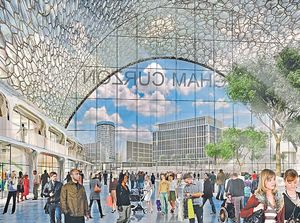
Launched in a blaze of glory in 2012, the high speed line has long been considered by proponents as a crucial cog in the nation’s economy, linking the north with the south through the Midlands, and freeing up capacity on the existing rail network.
But opposition has grown in recent years, with concerns over its burgeoning budget, mismanagement and damage to the environment leading many to conclude that the whole thing is simply not worth the time, expense and effort.
And calls for it to be stopped in its tracks will only grow louder after today’s latest report from the influential House of Lords Economic Affairs Committee.
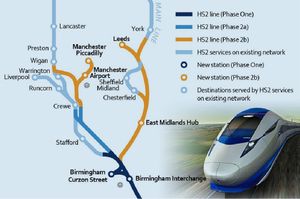
The group, which features Conservative, Labour and Lib Dem peers – including two former Chancellors – has warned that the section of the line beyond Birmingham may have to be scrapped as a result of spiralling costs.
Work is well under way on the first section of HS2, which will run from London to Birmingham and is scheduled to open in 2026.
A second phase is split into two sections, with one line running from Fradley in Staffordshire to Crewe. The route follows the border with Shropshire, with villages in its wake facing years of disruption from construction traffic.
While the Government maintains that HS2 is “on budget” at around £56 billion, the report, which has been published today, criticises ministers for failing to properly assess proposals to reduce expenditure.
MORE:
A number of cost cutting measures have been put forward in the last four years, according to the report, all of which have been ignored by the Government.
They include a 2015 recommendation to reduce the speed of trains on the line, which ministers rejected on the basis that it would limit journey time savings.
A series of plans laid out in a DfT-commissioned report in 2016 to reduce costs by more than £10bn were also thrown out.
Some critics, including former Foreign Secretary Boris Johnson and Stone MP Sir Bill Cash, believe HS2’s final cost could surge beyond £100bn.
Michael Fabricant, the Conservative MP for Lichfield, has been an opponent of HS2 from the start.
'Design and route is flawed'
He said: “While it has been an open secret that the costs of HS2 have spun out of control, it is the very design and route of it which is so flawed.
“We were originally promised that we could get a high speed train at Birmingham New Street and travel seamlessly through to Paris or Brussels and beyond.
“Now, it does not link directly with mainline stations, nor with Heathrow, nor with the continent.
“This not only betrays the high hopes for this novel train service, it also badly lets down Birmingham Airport, which had hoped for a direct link with Heathrow, making it a major hub of the world’s second busiest airport.”
Mr Fabricant also suggested the line may be on borrowed time, with an increasing number of politicians from both sides of the political divide opposing it.
“It is interesting that a number of potential successors to Theresa May in the Conservative Party, as well as some Labour politicians, are openly saying they would either rethink this project, or stop it in its yet unbuilt tracks,” he added.
'Black hole'
Sir Bill Cash describes HS2 as “fundamentally flawed”, and has urged the Government to scrap it now instead of “continuing to throw money down a black hole”.
He says stress caused by the line – phase two of which passes through 45 miles of Staffordshire countryside and cuts his constituency in half – had made some people there “physically ill”. “For the same price as HS2 the UK could buy two new aircraft carriers or 10 state-of-the-art NHS hospitals, let alone local infrastructure and roads,” he said.
Proposing alternative spending with the HS2 cash is a common theme among opponents of the line, with former Cabinet minister David Davis this week backing a Taxpayers’ Alliance report highlighting 28 road and rail schemes that could be funded with £56bn.
The projects – which were all submitted by members of the public – include £120m to reopen the Stourbridge to Lichfield line, upgrades to the Rugby to Birmingham line for £1.5bn, and the electrification of a section of the Chiltern Mainline between London Marylebone and Birmingham at a cost of £1bn.
'Vanity white elephant'
Mr Davis said: “Together, the projects would bridge the divide between north and south, boost economic growth, improve capacity in our transport networks and provide a better service to passengers. What’s more, all proposals combined could be delivered quicker and cheaper than HS2.
“It is time we cancelled this vanity white elephant and focused on ensuring we properly prepare for the future needs of a fast-growing post-Brexit economy.”
Today’s report continues the theme, claiming that investment in the UK’s rail network should be focused away from the starting point of HS2 in London.
Lord Forsyth of Drumlean, chairman of the Economic Affairs Committee, said: “Rail infrastructure in the north should be the Government’s priority for investment, rather than improving north-south links which are already good. The north is being short-changed by the Government’s present plans, especially as construction on HS2 is starting in the south. Any overcrowding relief from HS2 will mainly benefit London commuters.”
The report has added more fuel to the fire of HS2’s growing list of opponents.
Penny Gaines, chair of Stop HS2, said: “There are so many other schemes and projects that could be put in place with that money if HS2 was cancelled.
“It’s time this government listened to people across the country and cancelled HS2.”
The group has also raised concerns over damage to the environment by the construction of the line, starting a petition calling for preparatory works to be stopped that has been signed by more than 15,000 people.
Commitment
Concerns over the future of HS2 have also hit supporters of the line in the West Midlands, with a recent letter from council chiefs and business leaders prompting Theresa May to reaffirm the Government’s commitment to the line.
The Prime Minister said: “The Government remains committed to delivering the whole of HS2 Phase 2 and will continue to work closely with you to ensure that the project meets your aspirations for growth and regeneration.”
West Midlands Conservative Mayor Andy Street remains unequivocal in his support for HS2, which he sees as a vital part of the future economic prosperity of the region.
He said today: “HS2 is a game-changing opportunity for the West Midlands to be able to compete with major global cities like London and Paris.
The project is already creating thousands of local jobs whilst boosting local businesses who have secured contracts in the supply chain. It is also proving to be a major draw for businesses, including HSBC UK which has set up its headquarters in the region.
“All of these benefits are in addition to the major transport boost for local people, which will see our network and connectivity to the rest of the UK improve dramatically.
“Yes costs must be kept in check, but the prize is worth the investment. HS2 is vital for the growth of the West Midlands and the UK as a whole.”
An HS2 Ltd spokesperson said: “We thank the Lords Economic Affairs Committee for its interest in Britain’s new high speed railway and will consider their recommendations.
“HS2 will generate around £92 billion in benefits to the UK economy, with local economic plans forecasting the creation of 500,000 jobs and nearly 90,000 new homes. Work is under way at over 250 locations and the scheme already supports more than 7,000 jobs directly and across our supply chain.
“As stated in the report, HS2 is fundamental to the delivery of Northern Powerhouse Rail.
“It is also vital to the Midlands Rail Hub, and will transform rail journeys across the Midlands and North, giving passengers thousands of extra seats every day, and taking freight of the roads.
“As regional leaders across the Midlands and North have repeatedly said, it’s not a case of either or, it’s both.
“We have strengthened our controls and are actively applying lessons learnt from recent infrastructure projects to ensure we have the most cost-effective approach.”

